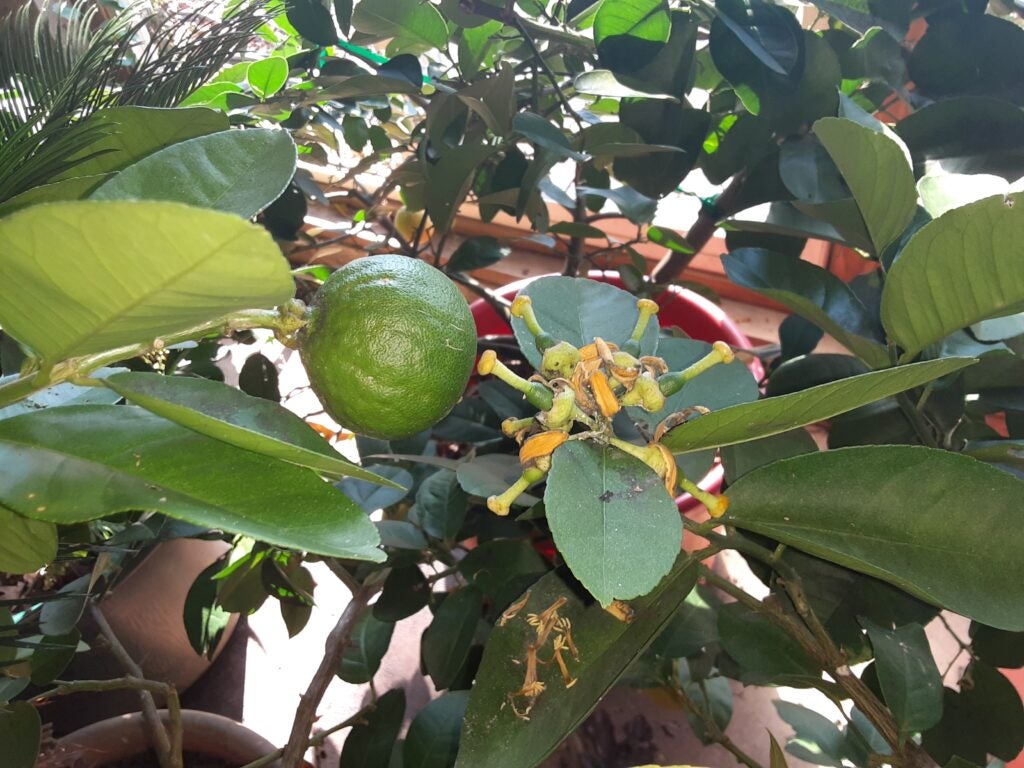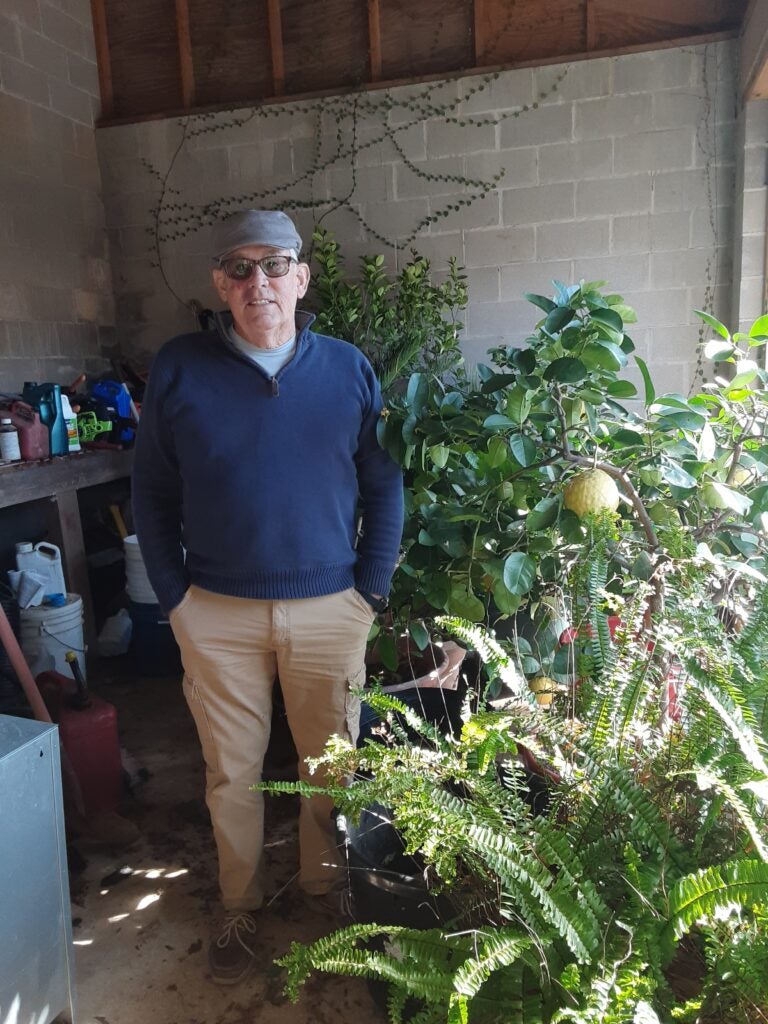
Taller than a bonsai but smaller than full size trees yield incredibly large lemons for Clanton resident Rick Miller.
His Ponderosa lemons will grow to be larger than a grapefruit.
“Every time somebody sees them, they go, ‘Oh, wow,’ because it is not something that most people have seen before,” Miller said.
He said caring for the trees can be challenging because the tree is native to a warmer climate.
Miller keeps the trees pruned to stay relatively short, so they will fit in his greenhouse in winter.
The placement of the greenhouse means “the sun stays on it all day,” creating a climate closer to what the plants are used to.
“This greenhouse is totally passive,” Miller said. “There is no external artificial heat in here.”
The sun shining thought the window heats up the concrete wall and floors of the greenhouse during the day “then at night when it gets cold it releases that heat, it never gets below 40 degrees in here,” Miller said.
Keeping the trees warm means he has lemons all year long.
“The ponderosa lemons slow down growing in the winter time, now they are still blooming, but it is really slow because of the cold,” Miller said.
Miller said the harvest peaks right before Thanksgiving each year. Each tree will yield about 10 lemons a year.
“As long as you water them and keep them fertilized, they grow quite well,” Miller said.
Those that grow in the winter season have a slightly different taste than those that grow in the summer. The growing process slows down in winter. Miller knows the fruit is ripe when its color changes from green to yellow.
In the summer, Miller uses a hand truck to move the potted trees outside. Gardening in pots is a good choice for Miller because the soil on his property is not good for gardening.
“It’s sand and sandstone with just enough clay to hold it together,” Miller said.
The trees usually have thorns, but over the years, Miller has worked to breed them out by cutting them off and “breeding the same thing over and over.”
“It’s a novelty more than anything,” Miller said. “For years, all I did was just give them away … The fruit really matures around Thanksgiving so people would use them for table settings.”
Recipients of the lemons have also enjoyed using them in pies.
This year, Miller has gotten experimental with his Ponderosa lemons, creating limoncello.
“The Italians made it famous,” Miller said.
“You take the zest of these lemons and extract the oil by using 195 proof alcohol, and sugar and you make a liquor with it, then you have to reduce it down to drinkable.”
The oversized lemons are not quite as tart as the lemons most people are used to.
“It still has the lemon flavor, but it’s not as tart as a store-bought one,” Miller said.
Miller became interested in growing the unique fruit about 25 years ago.
“I had a friend … his family owned Green Valley Nursery, and he was telling me about them, so I went and bought some of these trees,” Miller said.
He still has those three original trees to this day.
When Miller’s daughter was in school, she took one of the lemons for show and tell.
“The teacher carried it to the lunchroom, and they made lemonade for the whole class out of one lemon,” Miller said.
In addition to giving away lemons, Miller also gives away trees. He makes cuttings from his trees through an air rooting process.
“You take and skin the bark of the limb and then you take a piece of aluminum and you take the potting soil in there and you wrap it around the injury and it will start growing roots there, then once that is established, you cut it off and put it in a pot,” Miller said. “It is much more successful then just taking a cutting and putting it in soil and hoping that it’s going to root. I have done that for years and I have about a 20% success rate just normal rooting, but this way it is about 75% success.”
Miller keeps six trees in his collection. About 10 years ago, Miller added a Key Lime tree to his greenhouse.
“Surprisingly, Key limes, which supposedly come from the Keys in Florida and have a much warmer climate to grow in, they do well in the wintertime (in the greenhouse),” Miller said.
About five years ago, Miller added a satsuma tree to his collection. This is the first year that it has borne fruit. He said “patience and constant care” are needed for success.
Miller started his garden about 30 years ago.
However, his enjoyment of gardens started even earlier watching his grandmother work in her garden.
“I enjoy just seeing things grow,” Miller said.
His enjoyment of gardening led to him becoming a Master Gardener around 2009 or 2010. He said taking the courses helped him learn what gardening recommendations were “folklore” and which ones were backed by research was the greatest benefit of the class for him.
Being a part of the group has given him opportunities to spend time with people who enjoy gardening as much as he does, but there is a variety in what members like to grow.

